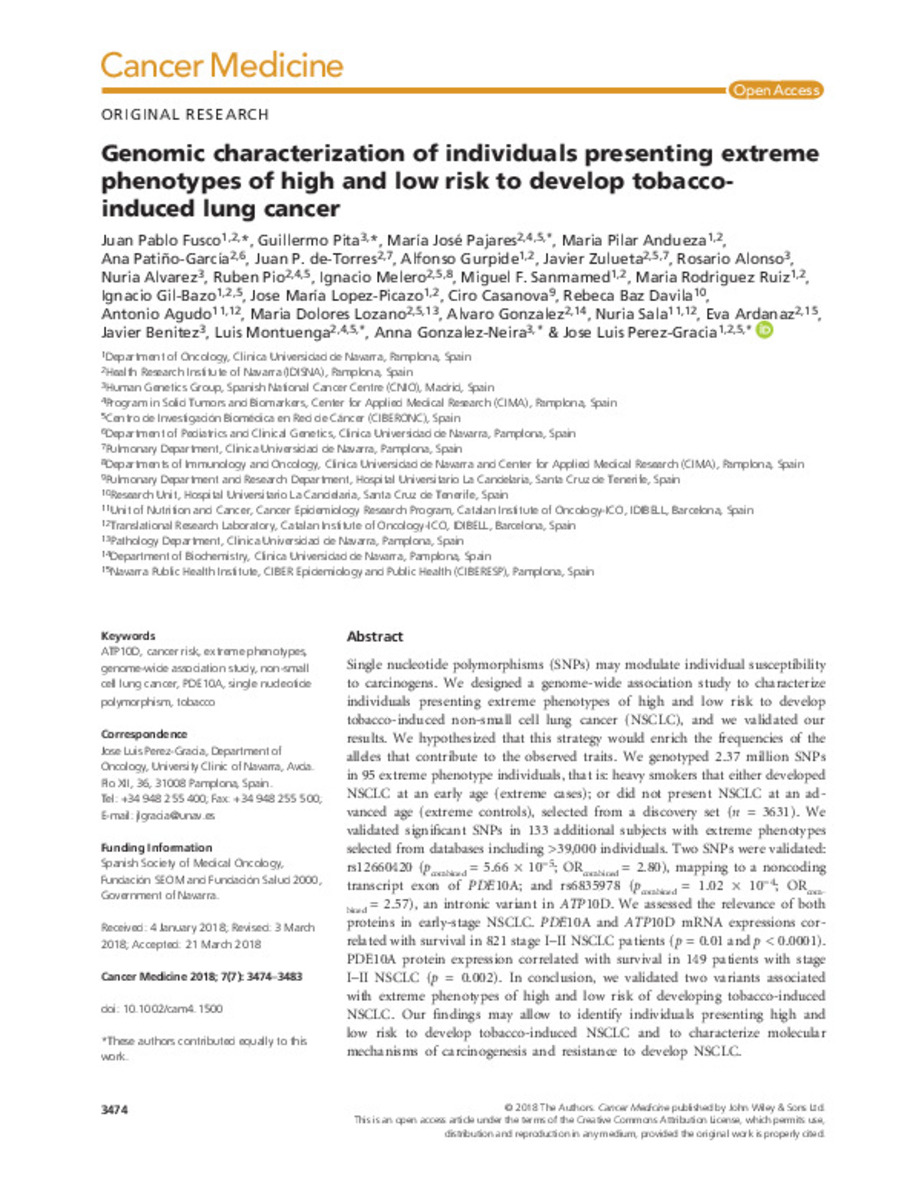Genomic characterization of individuals presenting extreme phenotypes of high and low risk to develop tobacco-induced lung cancer
Palabras clave :
ATP10D
Cancer risk
Genome-wide association study
Non-small cell lung cancer
PDE10A
Single nucleotide polymorphism
Tobacco
Fecha de publicación :
2018
Nota:
This is an open access article under the terms of the Creative Commons Attribution License, which permits use,
distribution and reproduction in any medium, provided the original work is properly cited.
Aparece en las colecciones:
Estadísticas e impacto
0 citas en

Los ítems de Dadun están protegidos por copyright, con todos los derechos reservados, a menos que se indique lo contrario.











